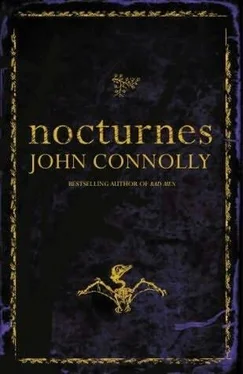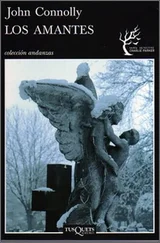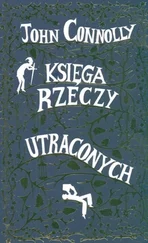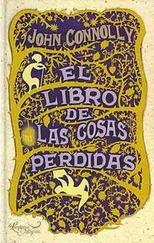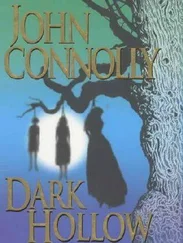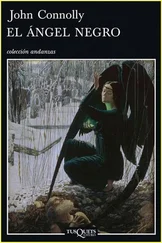Jerry suspected that Bruce knew what he was doing, but chose to ignore it in the hope that Jerry might see the light. Jerry was hoping to see something else entirely, and wondered if Ronnie might be prepared to show it if he got her alone and away from her daddy’s influence for a time. She occasionally smiled at him in a way that suggested she was suffering the frustrations that a good-looking young woman like her would surely feel, cut off as she was from any outlet for her appetites. The children were educated at home by their parents, and Jerry figured that the sexual component of that education could pretty much be summed up as “Don’t do it, and especially not with Jerry Schneider.” Educated at home, their ailments kind of treated at home-Jerry just hoped that nothing serious ever happened to any of the family, because the Bensons didn’t hold with doctors or medical intervention-and their lives revolving only around one another and a miserable, distant God; it would be some time before the networks got around to basing a comedy on the Benson family.
One of Bruce Benson’s brothers also lived with them. His name was Royston, and Jerry figured him for mildly retarded. He didn’t say much, and his head was always nodding like one of those little dogs that some people kept on the dashboard of their car, but he seemed fairly harmless. There was talk around town that he’d once tried to feel up Vern’s mother in the store a couple of years back, although Jerry had never worked up the courage to ask Vern-or his mother-if this was true. Maybe that was another reason why Bruce Benson never came down to the store. Nothing sours relations between folk like the dimwit brother of one party coming over all Italian on the upright Baptist mother of the second party.
Jerry passed through the main gates to the Benson farm, instinctively turning down the volume on the truck radio, since Bruce didn’t appreciate music much, and certainly not the stuff that was pouring out of Jerry’s speakers just now: Gloria Scott’s sultry vocals, backed up by the late, great Barry White’s production skills. Jerry liked the old Walrus’s touch. He might not have been quite as out there as Isaac, and he could legitimately be blamed for setting the tone for the limp, insipid stuff that passed for modern R amp; B, but there was something about those massed strings that made Jerry want to find some willing young thing and mess up the sheets with baby oil and cheap champagne. He wondered if Ronnie Benson had ever heard of Barry White. As far as Jerry knew, the Bensons didn’t even listen to the crazy preachers at the end of the dial, the ones who testified to the love of God yet seemed to hate just about everyone, or at least the kind of people that Jerry knew and liked. Introducing the Benson kids to Barry White would probably kill the old man stone dead, and drive the daughters into some kind of frenzy.
Discreetly, Jerry turned the volume back up a notch.
The Bensons always moved their chickens into a big barn as soon as winter came. In fact, Bruce had told Jerry last week that they’d be inside next time he came, but as he approached the chicken runs on the right, Jerry could see small bundles of white scattered upon the ground. They lay still. The wind ruffled their feathers some, so that they seemed to be trembling on the ground, but it was only a false impression of life.
The sight made Jerry stop short. Leaving the engine idling, he stepped from the truck and walked to the wire. Close by lay the body of one of the Bensons’ chickens. Jerry leaned in to touch it, pressing gently into its flesh with the tips of his fingers. Black fluid instantly oozed from its beak and its eyes, and Jerry withdrew his fingers hurriedly, rubbing them on the seam of his pants in an effort to cleanse them of any potential contagion.
All of the chickens were dead, but no animal had done this. There was no blood upon the feathers, and no damage that Jerry could see. In the far corner of the run, Jerry spotted the Bensons’ rooster strutting among his dead concubines, his red coxcomb clearly visible as he pecked at the ground, hunting for the last grains to stave off his hunger. Somehow he had survived the slaughter.
Jerry leaned in and turned off the engine of the truck. Everything here was wrong. There was desolation on the wind. He walked across the yard. The door to the Benson house was wide open, held that way by a triangle of wood at its base. He stood at the base of the steps leading up to the porch and called out Bruce Benson’s name.
“Hello?” he said. “Anybody home?”
There was no reply. The door led directly into the Bensons’ kitchen. There was food on the table, but even from outside Jerry could tell it was rotting.
I should just call the cops. I should call them now, then wait for them to come.
But Jerry knew that he couldn’t do that. Instead, he went back to his truck, tipped open the glove compartment, and took the cloth-wrapped Ruger from under the accumulation of maps, restaurant menus, and unpaid parking fines. The gun wouldn’t change anything, not now, but he felt better for having it in his hand.
The kitchen smelled bad. The dinner of chicken and biscuits looked as if it had been there for a couple of days. Jerry recalled the dead fowl in the run, and the black substance that had oozed from the mouth of the bird he’d touched. Christ, if the chickens had somehow become contaminated, and that contamination had spread to the family…His thoughts went to the eggs that he had been collecting and delivering to town for the past six months, and to the chicken that Benson had given to him as a Thanksgiving present less than a week before. Jerry almost threw up there and then, but he regained his composure. In all his life, he’d never heard of anyone dying from a poultry disease, except maybe that flu they had over in Asia, and what killed the Bensons’ chickens didn’t look like any flu Jerry had ever seen.
He checked the living room-no TV, just a couple of easy chairs, an overstuffed couch, and some religious pictures on the walls-and the downstairs bathroom. They were both empty. Standing at the bottom of the stairs, Jerry gave one more holler before making his way up to the bedrooms. The smell was stronger here. Jerry took his handkerchief from his pocket and jammed it against his nose and mouth. He already knew what to expect. He’d worked for a time in a slaughterhouse in Chicago when he was younger, one that wasn’t too fussy about the quality of its meat. Jerry had not eaten a hamburger since.
Bruce Benson and his wife were in the first bedroom, lying beneath a big white quilt. He was wearing his pajamas, and she was dressed in a blue cotton nightdress. There was black fluid on their clothing and on the bed, and more of it caked around the lower half of their faces. Bruce Benson’s eyes were half open, and his cheeks were streaked with black tears. From their expressions, Jerry figured they’d gone out hard. Even in death the pain remained fixed upon them, as though they were models carefully sculpted by a disturbed artist.
The three daughters were in the next bedroom. Although there were bunks in one corner, the girls had congregated on the big bed in the center of the room. Jerry guessed that this was Ronnie’s bed. She held her younger sisters cradled in her arms, one on each side. There was more black blood here, and Ronnie was no longer beautiful.
Jerry looked away.
The youngest child, Zeke, was in a little box room at the far end of the hallway. He had been covered up with a sheet. First to go, Jerry thought, when someone still had enough strength to shroud him after he died. But if there was strength to do that, why not call for help? The Bensons had a telephone, and even with their peculiar beliefs they must have realized that something was very wrong. Whole families didn’t die this way, not in Colorado, not anywhere civilized. This was like the plague.
Читать дальше
